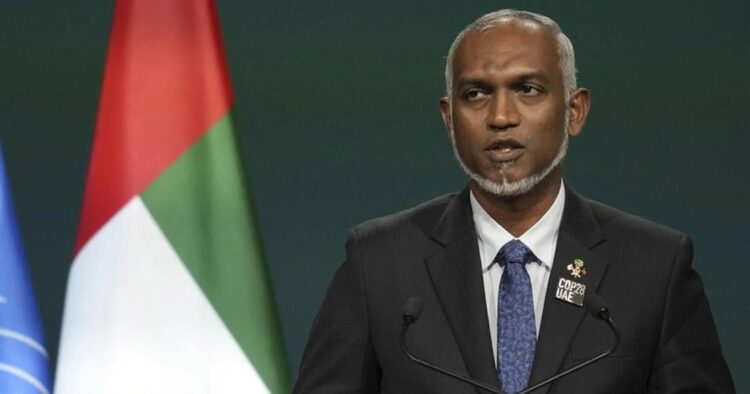Maldivian President Mohamed Muizzu has stirred controversy with allegations against his predecessor, Ibrahim Mohamed Solih, suggesting that Solih operated under the influence of a “foreign ambassador.” Muizzu, known for his perceived pro-China stance, made these remarks during an interview with state-run Public Service Media (PSM), without explicitly naming any country. Muizzu’s statements come amid his efforts to reduce the Maldives’ dependence on Bharat, with recent demands for the withdrawal of Bharatiya military personnel from the country.
During the interview, Muizzu hinted that Solih’s decisions were influenced by a foreign entity, leading to what he described as “extensive damage” to the Maldives. While he did not specify the country in question, Muizzu’s remarks have been interpreted as directed towards Bharat, given his recent moves to decrease ties with the neighboring nation.
Solih, who served as president from 2018 to 2023, implemented an “India First” policy during his tenure, which saw significant investment from Bharat in various development projects in the Maldives. Muizzu’s administration, however, has taken a different approach, with the president campaigning on promises to reduce Bharatiya military presence and foster closer ties with other nations, notably China.
Muizzu’s criticism of Solih’s government extends to its alleged failure to protect the Maldives’ independence and its perceived submission to a foreign country’s influence. Despite Solih’s Maldivian Democratic Party (MDP) holding a supermajority in Parliament, Muizzu claims that the country was left vulnerable to foreign interference.
Regarding recent military procurements, including drones from Turkiye, Muizzu emphasized the importance of national security and the need for counsel from military officials. He defended the lack of transparency in disclosing details such as the cost of the drones, citing the sensitive nature of military matters.
While Muizzu’s pro-China stance has raised eyebrows in New Delhi, Bharatiya policymakers have refrained from publicly criticizing his administration. However, there are concerns in Bharat about the growing proximity between the Maldives and China, especially in areas such as trade and security cooperation.
The political landscape in the Maldives remains polarized, with Muizzu’s administration accused by the opposition of jeopardizing longstanding ties with Bharat in favor of closer relations with China. Recent agreements between the Maldives and China, including one for the supply of non-lethal military equipment, underscore the shifting dynamics in the region. Amidst these developments, the Maldives finds itself at a crossroads, balancing between traditional allies and emerging partnerships, as it navigates its geopolitical future.

















Comments